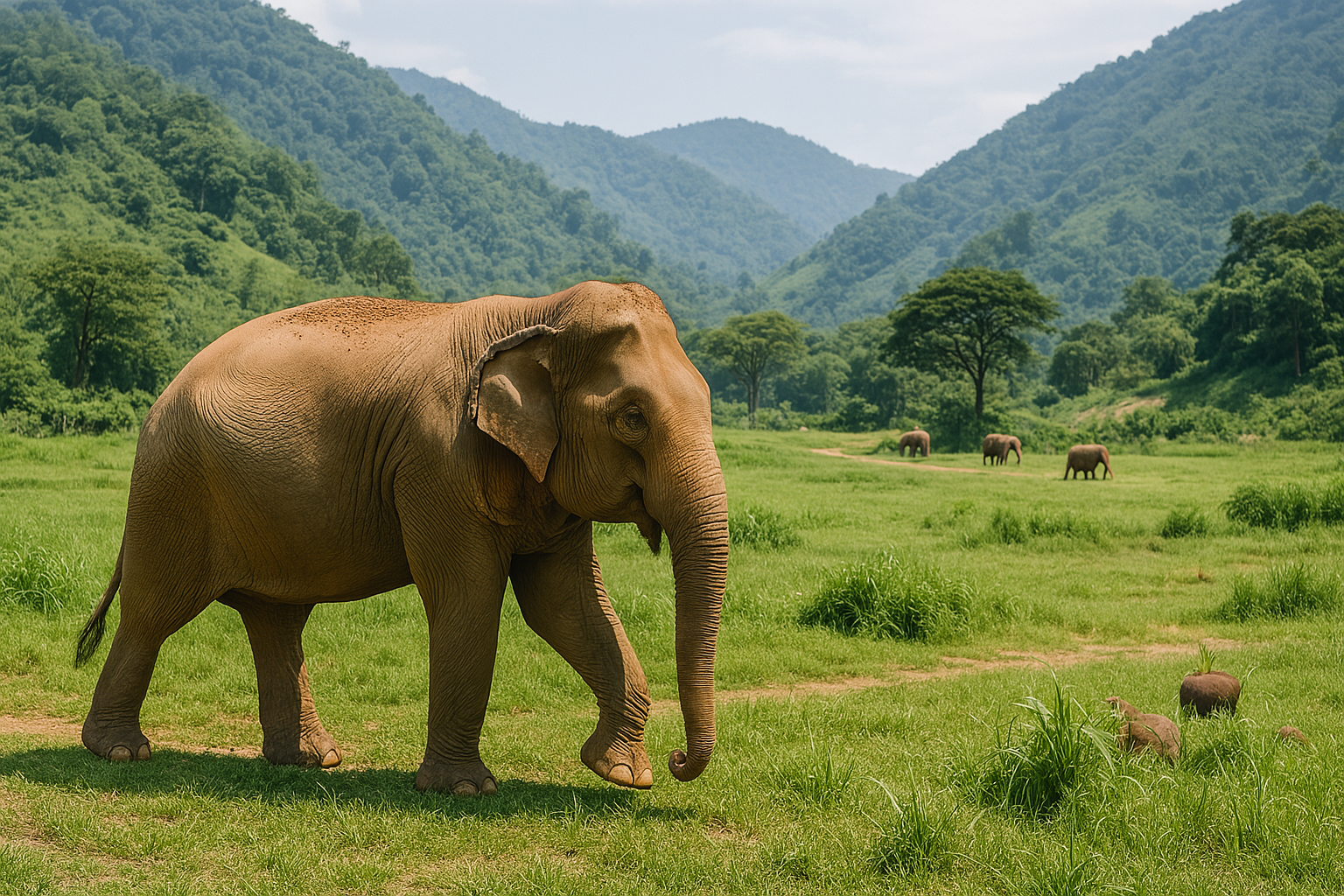Ever dreamed of locking eyes with a silverback gorilla in the wild, swimming alongside sea turtles, or watching wildebeests thunder across the Serengeti? Wildlife encounters around the world offer us magical moments of connection with nature — but how we engage with animals matters more than ever. While animal tourism can be awe-inspiring, it can also cause serious harm if we’re not careful. The good news? You can have unforgettable adventures while traveling responsibly, protecting the creatures you admire, and leaving only footprints behind.
Wild Encounters That Change You
Picture yourself trekking through Rwanda’s misty Volcanoes National Park, heart racing as you spot a family of mountain gorillas resting in the forest. You can almost hear their gentle grunts and see the intelligence in their eyes. In Borneo, orangutans swing overhead in the lush canopy, reminding you of our deep connection to the wild. Or maybe you’re floating in the Galápagos, watching a sea turtle glide by as if time has slowed just for you. These aren’t just trips — they’re soul-stirring encounters that stay with you long after you return home. But here’s the key: the best wildlife encounters around the world happen when we put respect, ethics, and sustainability first.
From African safaris to Arctic whale watching, the choices you make can help protect endangered species and fragile ecosystems. Always opt for small group tours, avoid hands-on interactions, and choose companies that support local conservation efforts. Websites like Responsible Travel and World Animal Protection are great places to research ethical operators before you book.
Where to Go for Responsible Wildlife Experiences
In Africa, Kenya and Tanzania lead the way with safaris that prioritize conservation. Visiting during the Great Migration? Choose an eco-lodge that employs local Maasai guides, limits off-road driving, and contributes to community projects. In Rwanda, gorilla trekking permits help fund anti-poaching patrols and forest protection. In Thailand, true sanctuaries like Elephant Nature Park offer visitors a chance to observe elephants in their natural behaviors without riding or forced tricks. And if you’re dreaming of the ocean, opt for ethical whale watching tours in Iceland, where companies work alongside marine researchers, or swim with dolphins only in the wild, under guides who keep their distance and never feed or chase pods.
For Arctic and Antarctic travelers, responsible cruising is a must. Look for operators with IAATO or AECO certifications, which ensure minimal environmental impact, and skip itineraries that include animal handling or disturbance. And don’t overlook magical, lesser-known options like firefly watching in the Philippines, bear viewing in Canada, or penguin spotting at South Africa’s Boulders Beach — all experiences where quiet observation beats close contact every time.

How to Choose Ethical Operators
Not all wildlife tours are created equal. Here’s what to look for when booking:
- Small group sizes to reduce stress on animals.
- Certified local guides who understand wildlife behavior.
- No direct contact — skip places offering selfies, rides, or petting.
- Tours that educate, not just entertain, guests.
- Operators who give back through conservation or community support.
Look for certifications from groups like the Global Ecotourism Network or TourCert. Read traveler reviews carefully, as they often reveal whether a company’s ethical promises hold up in real life. Remember, ethical travel isn’t just good for the planet — it’s often more rewarding, offering deeper, more authentic connections with nature and local cultures.
Why Ethical Wildlife Travel Matters
It’s tempting to believe that all wildlife tourism supports conservation, but sadly, that’s a myth. Many attractions exploit animals for profit, keeping them in poor conditions or forcing unnatural interactions. Whether it’s elephant rides, captive dolphin swims, or roadside animal shows, the result is often stress, injury, and shortened lifespans for the animals involved. By contrast, ethical wildlife encounters around the world help protect endangered species, restore habitats, and fund local economies that value conservation over exploitation.
Plus, when travelers choose ethical options, we send a powerful message to the tourism industry. We’re saying we want authentic, respectful experiences — not staged shows. We’re saying we care about the long-term survival of the species we admire. And we’re proving that tourism can be a force for good when done thoughtfully. This shift not only improves the lives of animals but also helps preserve the wild places they call home, from coral reefs to rainforests to savannahs.

At its best, travel expands our understanding of the world and deepens our compassion for its creatures. By embracing ethical wildlife encounters around the world, we help ensure that future generations can marvel at gorillas in the mountains, whales in the ocean, and elephants on the plains — not just in history books or on screens. So before you book that dream wildlife trip, do your research, ask the right questions, and commit to being part of the solution. The reward? Memories that will last a lifetime and a legacy of care you can be proud of.
Have you had an unforgettable wildlife experience that taught you something powerful? Or maybe you’ve spotted an ethical gem that deserves a shout-out? Share your story in the comments — we’d love to hear how you’re making a difference through travel. And don’t forget to follow WentWorld on social media for more guides, tips, and inspiring adventures that celebrate our planet’s incredible creatures.
Catch up on the top stories and travel deals by subscribing to our newsletter!












Leave a Reply